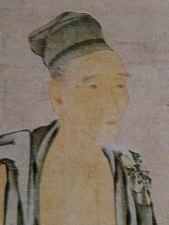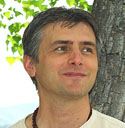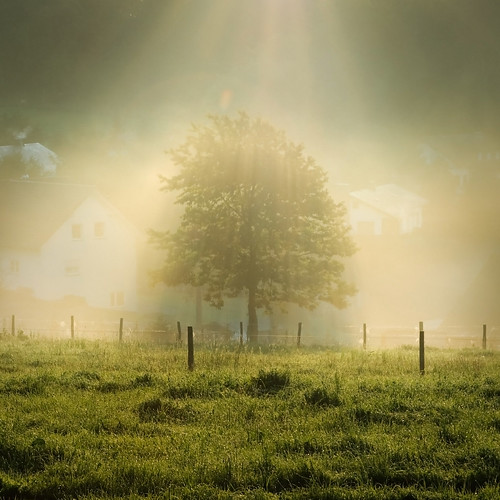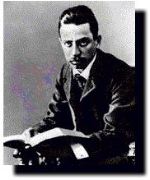Sep 26 2025
Hsu Yun – An Exquisite Truth
An Exquisite Truth
by Hsu Yun
This is an exquisite truth:
Saints and ordinary folks are the same from the start.
Inquiring about a difference
Is like asking to borrow string
when you’ve got a good strong rope.
Every Dharma is known in the heart.
After a rain, the mountain colors intensify.
Once you become familiar with the design of fate’s illusions
Your ink-well will contain all of life and death.
 — from The Longing in Between: Sacred Poetry from Around the World (A Poetry Chaikhana Anthology), Edited by Ivan M. Granger
— from The Longing in Between: Sacred Poetry from Around the World (A Poetry Chaikhana Anthology), Edited by Ivan M. Granger
/ Image by Alain Bonnardeaux /
I like what that opening statement says:
This is an exquisite truth:
Saints and ordinary folks are the same from the start.
Whether we’re talking about inspired reformers or shining examples of enlightenment, our instinct is to elevate great souls as unique phenomena. We assume they are somehow other than us. But the liberating and challenging truth is that saints are the same as everyone else. The only difference, if we want to call it a difference, is that they don’t cloak their nature as most of us have learned to do. We all have that same steady glow within us. A saint is simply someone who doesn’t damp it down.
Understood this way, the spiritual journey is not one of crushing effort to acquire virtues, to build wisdom, and to learn love. We already have all of that in abundance. The only work necessary is to let go of the assumptions that keep our true nature hidden.
Once you become familiar with the design of fate’s illusions
Your ink-well will contain all of life and death.
I think these are the lines I respond to most. I don’t know about you, but I spent so much of my life as a teenager and young adult feeling disappointed with where I found myself in the world. I wanted something profound, adventurous, bursting with meaning. Instead, I had a very ordinary lower middle-class American upbringing. I sabotaged my college education and decided to search for something deeper. Most of that search was a painful flailing about, but it did bring me adventures, both internal and external. I lived on Maui for several years. I lived high up in the Rocky Mountains. I’ve been homeless. I’ve had friends in wheelchairs, friends with wealth. I’ve known hippies and bikers and techies and farmers.
While all of that makes for good stories, that ache for something extraordinary just fell away the moment I first settled into a sense of spiritual opening. With that dawning of peace, I also found rest… and a profound sense of self-acceptance. It wasn’t that I had somehow changed into someone new and extraordinary. Instead, I felt profoundly myself for the first time, profoundly my ordinary self. And I can’t describe how blissful that recognition of ordinariness is. I no longer felt the constant need to struggle after the extraordinary; the simple and the plain stood revealed as a stunning work of art filling every day.
These lines by Hsu Yun about “fate’s illusions” remind me of how I spent the first three decades of my life struggling against my circumstances to find a fate with meaning, only to discover that the struggle was unnecessary. All I had to do was open my eyes. In every corner of the world, in every life, great and humble, the entire mystery of life and death can be found.
After a rain, the mountain colors intensify.
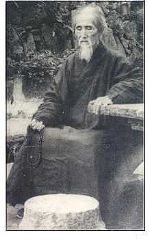
|
Hsu Yun
China (1839 – 1959) Timeline |


